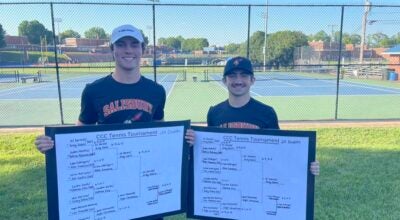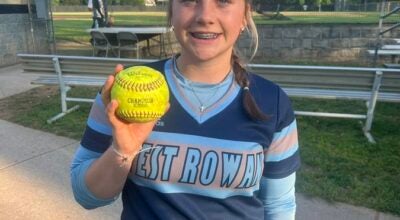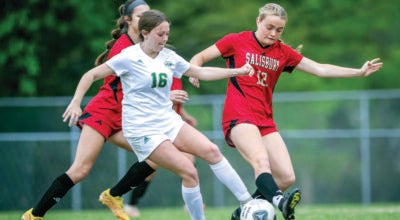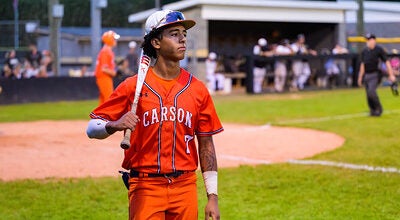Sports obituary: Emil Sparger was a Spencer legend
Published 12:00 am Sunday, May 31, 2020
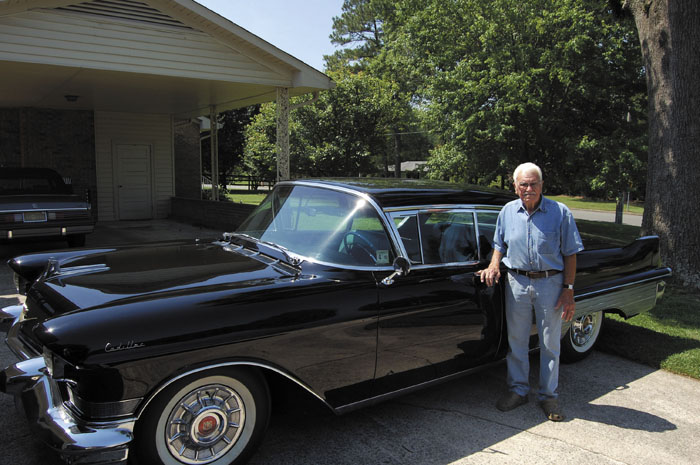
- Emil Sparger stands next to his 1957 Cadillac outside his Spencer home. Photo by Mark Wineka, Salisbury Post
By Mike London
mike.london@salisburypost.com
SPENCER — Emil Sparger, a colorful character who enjoyed a highly unusual athletic career that included professional baseball, passed away on Memorial Day.
Born in 1927, the year Babe Ruth swatted 60 homers, Sparger was 93.
The story goes that he loved playing sports for the Spencer High Railroaders so much that when graduation day loomed in the spring of 1944, Sparger intentionally flunked a subject, so he’d have to come back to high school for another year. He’d heard reports that Spencer would be restarting the football program that had been put on hold during the falls of 1942 and 1943 by World War II, and he desperately wanted to be part of it. Some of that tale may be legend and some of it may have been stretched over the years, but it’s a fact that he was back at Spencer for the 1944-45 school year.
His return would yield both rewards and consequences for the Railroaders.
Sparger was an exceptional three-sport athlete in high school. Baseball was his best sport.
For the 1944 Spencer baseball team, he was the starting catcher, but he also was used frequently as a relief pitcher. There was a 4-3, 12-inning win against Landis on April 14, 1944, during which Sparger caught the first nine innings and pitched the last three. He struck out two Landis hitters with the bases loaded and was carried off the field by his teammates. At least one scout was on hand to see that one. That probably led to his premature pro career.
By the end of Spencer’s 1944 season, Sparger was doing most of the pitching, No one lost any sleep over pitch counts, and if you started on the hill, you were expected to finish. Sparger threw 14 innings at Statesville and would have thrown more in a game that was mercifully halted by darkness with a tie score.
In his last baseball effort for Spencer at Eighth Street Ballpark, he threw a complete game to beat a strong China Grove squad.
Sparger was honored at Spencer’s athletic banquet, although a lot of the attention went to four of his teammates — William O’Brien, Bruce Simmerson, T.C .Neal Jr. and George Cruse. They had enlisted for military service and were off to join the war effort.
The late spring of 1944 is where things got complicated for Sparger. He signed a contract to play pro baseball for the Chicago Cubs organization. It was a contract that paid him only $100 per month, but Sparger probably would have played for free. Still only 17, but fearless, he headed to Erwin, Tenn., to play in the Class D Appalachian League.
Erwin’s park had been cut out of the side of a mountain. The left-field “wall” actually was part of that mountain. The lights were dim. The infield — Sparger was an infielder in pro ball — was hard clay. At the plate, Sparger went 10-for-50, an even .200.


